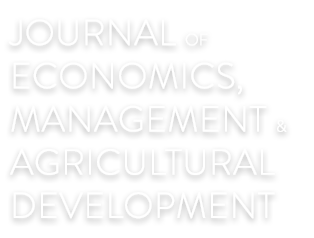Authors
ABSTRACT
This study examined the antecedents of Filipino engineering students’ intention to work overseas, applying the theory of planned behavior (TPB) (involving attitude, subjective norm, and perceived behavioral control) extended with migration push and pull factors (PPF) (involving salary and compensation, career prospects, and quality of life). Structural equation modeling using 1,706
questionnaire responses proved that the PPF dimensions were indistinguishable, while another factor distinct from attitude, evoking the perceived enjoyment of working overseas (PEJ), emerged. The TPB and PPF were identified as important antecedents of intention (R2 = 0.667). PEJ had no direct effect on it
but was significant along with PPF in explaining attitude, which mediated PEJ and PPF’s indirect effects on intention. Additionally, evidence was found for the moderation and effects of student characteristics (including gender, year level, school type, income group, and migration network). The findings provide
opportunities for integrating human factors into labor migration-related strategies.

